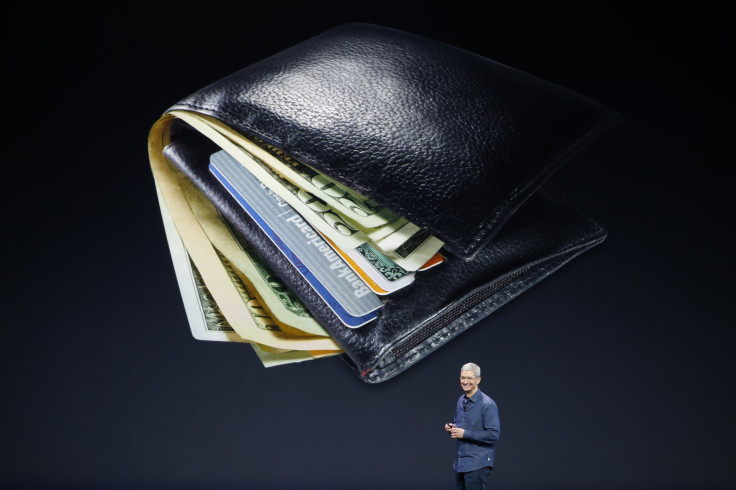Apple Pay Peer Pressure: What Will Drive iPhone 6 Sales In 2015

Imagine a long line of people waiting to pay for their items at a retail store. They're all checking out with Apple Pay, which functions as a swipe of your credit card with nothing but a tap of your iPhone 6 against a special sensor. Then it's your turn to pay, and you're fumbling with cash. Your change spills out and clangs on the counter. How red is your face?
This future isn't here yet. Apple Pay is too young to have hit any critical mass establishing it as a new normal. But iPhone 6 sales are tremendous, and it's conceivable that a significant percentage of retail transactions may be facilitated through our iPhones by the end of 2015. The link between peer pressure and technology is strong. If in 2010 people said, "I can't believe you still have a flip phone," it's easy to imagine them saying in 2015, "you mean you're still using a wallet?"
Paying for stuff is the first truly new function since advent of the smartphone. Unwittingly or not, Apple has missionaries at work in public every time someone pays for items with Apple Pay. It's quick and easy and sure to be noticed by the person behind them in line. Could peer pressure become one of Apple's biggest marketing tools?
"One reason to use an Apple product is to make a statement, whether it's an iPhone, a Mac, or other device," said Dr. Brett Laursen, a professor of psychology at Florida Atlantic University. "There are people who want to be flashy, or want to make sure others know they’re using the technology. The question is to what extent can Apple users force the rest of us to conform."
This might become possible in two ways, as Laursen explained there are two types of peer pressure: "The first arises from the characteristics of the influencer. Someone influences you through their actions. Maybe they have strong social skills or persuasive abilities. The second arises from the characteristics of the influencee. You are influenced by the desire to conform out of fear of looking bad or getting left out or left behind."
Suppose the aforementioned line of people speedily checking out with Apple Pay consists of A-list celebrities. You'll surely feel the first type of peer pressure — that which comes from persuasive, influential people. If the line simply consists of strangers and you're the only one relying on cash, this would more closely fall under the second type, though it would probably require repeated exposure to this scenario for it to register as your "falling behind." But even then, it's up to your own characteristics to decide if this is something worth altering your behavior for.
Again, we're nowhere near the Apple Pay proliferation we'd need to see in order to establish paying with your phone as a new normal. If Apple's blockbuster sales continue with the kind of momentum we're already seeing, it seems likely. But we won't know until we know.
"You might consider the paperless airplane ticket," said Laursen. "You can flash your phone at flight check-in, but this hasn’t taken over, even though it's been available for a while."
© Copyright IBTimes 2025. All rights reserved.





















